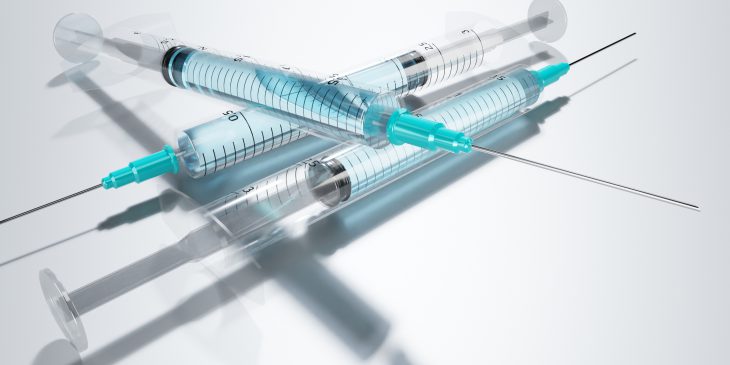The Centers for Disease Control and Prevention recently issued new guidance about third dose boosters of the Pfizer-BioNTech COVID-19 vaccine to guide which populations should receive a booster next.
The CDC recommends:
• people 65 years and older and residents in long-term care settings receive a booster shot of Pfizer-BioNTech’s COVID-19 vaccine at least 6 months after their Pfizer-BioNTech primary series,
• people aged 50–64 years with underlying medical conditions receive a booster shot of Pfizer-BioNTech’s COVID-19 vaccine at least 6 months after their Pfizer-BioNTech primary series,
• people aged 18–49 years with underlying medical conditions may receive a booster shot of Pfizer-BioNTech’s COVID-19 vaccine at least 6 months after their Pfizer-BioNTech primary series, based on their individual benefits and risks, and
• people aged 18-64 years who are at increased risk for COVID-19 exposure and transmission because of occupational or institutional setting may receive a booster shot of Pfizer-BioNTech’s COVID-19 vaccine at least 6 months after their Pfizer-BioNTech primary series, based on their individual benefits and risks.
After reviewing these recommendations, UPMC experts addressed the public to help make sense of the news.
“Throughout the pandemic, UPMC has sought to have the appropriate policies, procedures, research and the implementation of that research to care for our patients and provide advice,” said Dr. Donald Yealy, the UPMC chief medical officer.
“It’s an important time to put into context the changing guidance we are getting about the vaccine,” said Dr. Graham Snyder, UPMC’s medical director of infection prevention and hospital epidemiology. “Vaccines are one of the strongest tools we have to change the pandemic. Vaccines offer excellent protection against serious illness – illness that will kill you or keep you in the hospital or require assisted breathing. These vaccines will still so do this whether you had your dose six or seven or eight months ago.”
“This latest news from our federal public health officials brings along another purpose of the COVID-19 vaccines. This guidance is for people who are older, people with medical conditions that may put them at risk of complications, and people who may have a higher risk of exposure based on where they are and where they work. Research has shown this group of vaccinated people are still responding very well, but their immune system needs a reminder,” Snyder said.
The booster offers the body another chance to build upon the response it had either from a previous vaccine, or from recovering from COVID-19. For the vast majority of these people, it reinforces the immunity you have rather than adding new protection. “It’s a review lesson for your immune system,” Dr. Yealy said.
Another strong area of impact for the additional vaccine dose is people who may not have responded to the vaccine in the first place. People who fall into an immunocompromised group should have a conversation with their health care provider. “The authorized Pfizer booster makes a lot of sense for this small group of people who make up about three percent of the United States population,” Dr. Yealy added.
Recommendations for additional groups and people who received the Moderna or Johnson & Johnson COVID-19 vaccines are expected to be announced in the coming weeks.
“The most impactful way to get the benefit of the vaccine is to get vaccinated period,” Dr. Snyder said.
For some, boosters will enhance this benefit.
“We want you to have the best possible immune response and be ready in case you come in contact with the virus,” Dr. Yealy said.
For the latest CDC guidance, visit: CDC Statement on ACIP Booster Recommendations | CDC Online Newsroom | CDC








